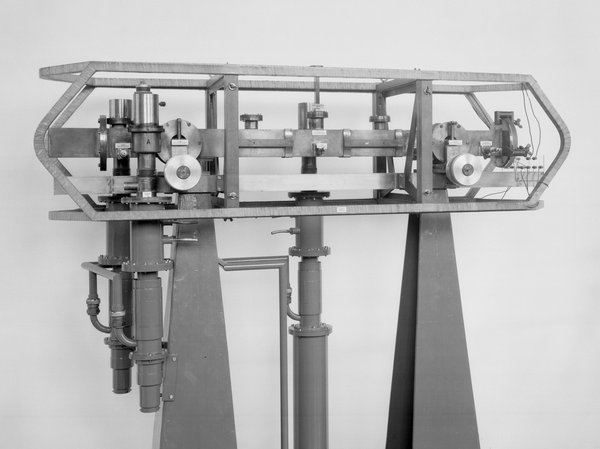Decoupling civil timekeeping from Earth rotation
This post was written by David Rooney
I spend quite a lot of time thinking about leap seconds. They’re the extra seconds inserted into time at midnight on New Year’s Eve every few years.
Recently they’ve been hitting the news, as a proposal led by some American time scientists to abolish the leap second system has caused a bit of a furore.
OK, here’s the deal. For ever, we’ve measured time by the rotation of the Earth. One rotation equals one day. At least, that was the case until Louis Essen and Jack Parry developed the first practical atomic clock, in 1955 (you can see it at the Science Museum).

This technology, once developed and refined, became a more accurate timekeeper than the spinning Earth, so we moved to atomic clocks to measure time.
But we’re animals, and we’re therefore hard-wired to the temporal patterns of the Earth’s rotation – daylight and darkness, the seasons. So a system was designed to keep the new atomic timescale in step with the Earth.
That’s the leap second, and we’ve been recalibrating the atomic clocks with these occasional one-second corrections since 1972. The resulting timescale is called Coordinated Universal Time, or UTC, and it’s never more than a fraction of a second away from Greenwich Mean Time.
So the proposal by the American scientists to abolish the leap second system and let our civil timescale drift away from GMT has set a lot of people thinking about fundamental issues in the philosophy, technology and metrology of timekeeping.
My point? Recently I read about a colloquium held last October in Pennsylvania exploring the implications of redefining UTC as a purely atomic timescale – decoupling civil timekeeping from Earth rotation.
You can read the papers and discussions here (click Preprints). This is truly fascinating stuff – measured, thoughtful and far-reaching, and the first substantial engagement I have read on the implications of this challenging proposal. Well worth a read if you’ve a spare second.